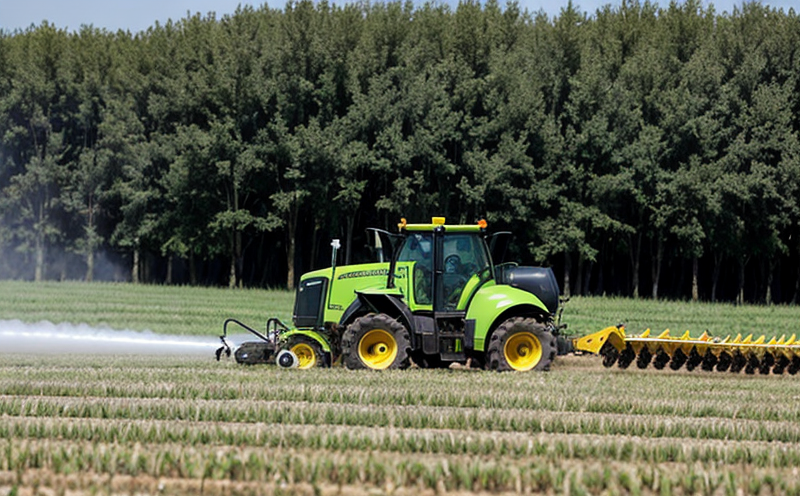Captan Residue Testing in Crops Validation Method Development Test
Captan residue testing is a critical process that ensures compliance with international standards and regulatory requirements. Captan, an organochlorine fungicide, has been widely used for its broad-spectrum activity against various plant diseases. However, due to potential health risks associated with overuse, there are strict limits on the allowable residues in crops. Our service focuses on validating methods that ensure these residue levels do not exceed safe thresholds.
The testing process involves multiple stages: sample collection, preparation, and analysis. Samples are typically taken from various locations within a field or storage facility to ensure representativeness. After collection, samples undergo rigorous preparation steps which may include drying, grinding, sieving, or extraction depending on the matrix type (e.g., leaf tissue, grain). Once prepared, the sample is analyzed using validated analytical techniques such as High-Performance Liquid Chromatography (HPLC) coupled with Mass Spectrometry (MS).
Our laboratory follows internationally recognized standards like ISO 17025 for method validation and ISO/IEC 17026 for proficiency testing. This ensures that our methods are both accurate and reproducible, providing reliable data necessary for regulatory approval. The validated methods not only meet but often exceed the required limits set by organizations such as the United States Environmental Protection Agency (EPA), European Food Safety Authority (EFSA), or other relevant bodies.
In addition to ensuring compliance with regulations, this service helps our clients optimize their crop production practices. By identifying optimal application rates and timing, farmers can minimize unnecessary chemical use while maintaining effective disease control. This leads to better yields and improved product quality which is increasingly important in competitive markets where consumers demand safer food products.
Our team works closely with researchers and development engineers to refine test protocols based on latest scientific findings. We stay updated with advancements in analytical technology, including newer detection techniques like Ultra Performance Liquid Chromatography (UPLC) which offer higher sensitivity than traditional methods. Such updates are crucial for keeping up with evolving standards and ensuring continued compliance.
Through comprehensive validation studies conducted under controlled conditions simulating real-world scenarios, we provide robust evidence supporting the efficacy of our testing procedures. These tests also help in understanding how environmental factors like temperature, humidity, or storage duration might affect residue levels over time.
- International Acceptance: Our validated methods are accepted by multiple countries including the United States, European Union member states, and others adhering to international standards such as ISO/IEC 17025. Compliance with these global norms ensures seamless trade across borders without delays caused by differing requirements.
In conclusion, our Captan residue testing service provides essential support for agricultural businesses aiming to produce safe, high-quality crops while adhering strictly to legal guidelines. By leveraging advanced analytical technologies and strict validation protocols, we ensure reliable results that can be used confidently in decision-making processes related to crop management practices.





